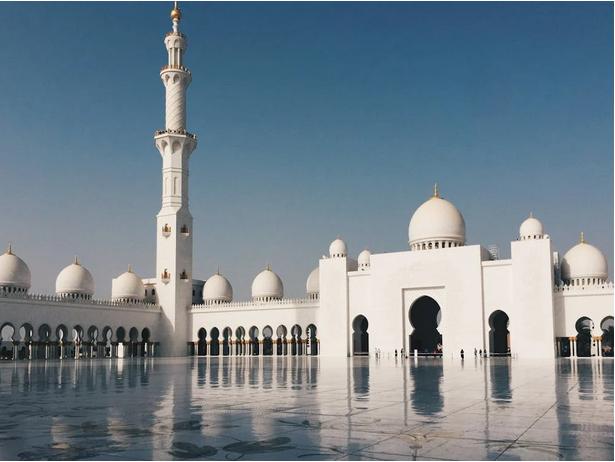ഇസ്ലാമിലെ യഥാർത്ഥ സന്തോഷത്തിലേക്കുള്ള പാത

യഥാർത്ഥ സന്തോഷം: ഇസ്ലാമിക ആത്മപഥത്തിന്റെ വെളിച്ചം
ഇസ്ലാമിൽ യഥാർത്ഥ സന്തോഷം: ആത്മാവിന്റെ ലക്ഷ്യം
മനുഷ്യൻ ജീവിതം മുഴുവൻ അന്വേഷിക്കുന്ന ഒരു വാക്കുണ്ട് — സന്തോഷം. സമ്പത്ത്, സൗഖ്യം, ബന്ധങ്ങൾ, നേട്ടങ്ങൾ — ഇവയിലൊക്കെയും അവൻ സന്തോഷം തേടുന്നു. എങ്കിലും, കൈവശം എല്ലാം ഉണ്ടായിട്ടും ഹൃദയം ശൂന്യമായിരിക്കുന്നവരെ നാം കാണുന്നു. അതേസമയം, കുറവുകളോടെ ജീവിച്ചിട്ടും സമാധാനത്തിലും സന്തോഷത്തിലും നിറഞ്ഞിരിക്കുന്നവരും ഉണ്ടാകുന്നു. ഈ വ്യത്യാസത്തിന്റെ രഹസ്യം എന്താണ്?
ഇസ്ലാം പഠിപ്പിക്കുന്നത് വ്യക്തമാണ്: യഥാർത്ഥ സന്തോഷം പുറത്തല്ല; അത് ആത്മാവിന്റെ അവസ്ഥയാണ്. അല്ലാഹുവുമായുള്ള ബന്ധം ശരിയായാൽ, ജീവിതം എങ്ങനെയായാലും ഹൃദയം ശാന്തമായിരിക്കും.
“വിശ്വാസം പുലർത്തുകയും സൽപ്രവൃത്തികൾ ചെയ്യുകയും ചെയ്യുന്നവർക്ക് നല്ല ജീവിതമുണ്ട്.”
(സൂറത്ത് അൻ-നഹ്ൽ 16:97)
ഈ ലേഖനം, ഇസ്ലാമിന്റെ വെളിച്ചത്തിൽ യഥാർത്ഥ സന്തോഷത്തിലേക്കുള്ള ആത്മീയ പാതയെ ആഴത്തിൽ അവതരിപ്പിക്കുന്നു.
സന്തോഷം: ഇസ്ലാമിക ദൃഷ്ടികോണം
സന്തോഷം ഒരു വികാരമല്ല, ഒരു അവസ്ഥ
ഇസ്ലാമിൽ സന്തോഷം താൽക്കാലിക ആവേശമല്ല. അത് ഹൃദയത്തിന്റെ സ്ഥിരതയാണ്. ജീവിതത്തിൽ കഷ്ടതകൾ വരുമ്പോഴും, ഹൃദയം തകർന്നുപോകാതിരിക്കാനുള്ള ഒരു ആന്തരിക ശക്തി.
“അല്ലാഹുവിന്റെ സ്മരണയാൽ മാത്രമാണ് ഹൃദയങ്ങൾക്ക് സമാധാനം ലഭിക്കുന്നത്.”
(സൂറത്ത് അർ-റഅദ് 13:28)
ഈ സമാധാനമാണ് യഥാർത്ഥ സന്തോഷത്തിന്റെ അടിത്തറ.
ലോകസന്തോഷവും ആത്മസന്തോഷവും
ലോകസന്തോഷം സാഹചര്യങ്ങളിൽ ആശ്രയിക്കുന്നു. ആത്മസന്തോഷം — അല്ലാഹുവിൽ ആശ്രയിക്കുന്നു. ഇസ്ലാം ലോകത്തെ നിഷേധിക്കുന്നില്ല; പക്ഷേ ലോകത്തെ അവസാനലക്ഷ്യമായി കാണരുതെന്ന് പഠിപ്പിക്കുന്നു.
“ലോകജീവിതം ഒരു കളിയും വിനോദവുമാത്രമാണ്.”
(സൂറത്ത് അൽ-അൻആം 6:32)
യഥാർത്ഥ സന്തോഷത്തിന്റെ ആദ്യവാതിൽ: ഇമാൻ
വിശ്വാസം ഹൃദയത്തിൽ വെളിച്ചം തെളിയിക്കുന്നു
ഇമാൻ ഇല്ലാത്ത ഹൃദയം, എല്ലാം ഉണ്ടായിട്ടും ഇരുട്ടിലാണ്. ഇമാൻ ഉള്ള ഹൃദയം, കുറവുകളിലും വെളിച്ചം കണ്ടെത്തും.
“അല്ലാഹു വിശ്വാസികളുടെ ഹൃദയങ്ങളിൽ സമാധാനം ഇറക്കുന്നു.”
(സൂറത്ത് അൽ-ഫത്ഹ് 48:4)
ഇമാൻ മനുഷ്യനെ ഭയത്തിൽ നിന്ന് മോചിപ്പിക്കുകയും, പ്രത്യാശയിലേക്ക് നയിക്കുകയും ചെയ്യുന്നു.
അല്ലാഹുവിൽ വിശ്വാസം, വിധിയിൽ സമാധാനം
ജീവിതത്തിൽ സംഭവിക്കുന്ന എല്ലാറ്റിനും പിന്നിൽ അല്ലാഹുവിന്റെ ഹിക്മത്തുണ്ടെന്ന വിശ്വാസം, മനുഷ്യനെ നിരാശയിൽ നിന്ന് രക്ഷിക്കുന്നു.
“നിങ്ങൾക്ക് ദോഷമായി തോന്നുന്ന കാര്യത്തിൽ പോലും നന്മ ഉണ്ടാകാം.”
(സൂറത്ത് അൽ-ബഖറ 2:216)
ഖദർ (വിധി) സ്വീകരിക്കൽ: സന്തോഷത്തിന്റെ രഹസ്യം
നിയന്ത്രണം വിട്ടതിനെ അംഗീകരിക്കൽ
മനുഷ്യന്റെ സന്തോഷം പലപ്പോഴും തകരുന്നത്, അവൻ നിയന്ത്രിക്കാനാവാത്ത കാര്യങ്ങളിൽ പിടിച്ചുനിൽക്കുന്നതിനാലാണ്. ഇസ്ലാം പഠിപ്പിക്കുന്നത്: നിന്റെ ശ്രമം ചെയ്യുക; ഫലം അല്ലാഹുവിന് വിട്ടുകൊടുക്കുക.
“അല്ലാഹു ഇഷ്ടപ്പെടുന്നതല്ലാതെ ഒന്നും സംഭവിക്കില്ല.”
(സൂറത്ത് അത്ത്-തൗബ 9:51)
“അൽഹംദുലില്ലാഹ്” എന്ന മരുന്ന്
നന്ദിയുള്ള ഹൃദയം അസന്തോഷത്തിൽ കുടുങ്ങില്ല.
“നിങ്ങൾ നന്ദി കാണിച്ചാൽ, ഞാൻ നിങ്ങളെ കൂടുതൽ അനുഗ്രഹിക്കും.”
(സൂറത്ത് ഇബ്രാഹീം 14:7)
യഥാർത്ഥ സന്തോഷവും തഖ്വയും
ദൈവബോധത്തോടെ ജീവിക്കൽ
തഖ്വ എന്നത് എല്ലായ്പ്പോഴും അല്ലാഹുവിന്റെ സാന്നിധ്യം അനുഭവിക്കുന്ന അവസ്ഥയാണ്. ഈ ബോധം ഹൃദയത്തെ തെറ്റുകളിൽ നിന്ന് കാക്കുകയും, മനസ്സിനെ ശാന്തമാക്കുകയും ചെയ്യുന്നു.
“അല്ലാഹുവിനെ സൂക്ഷിക്കുന്നവന് അവൻ ഒരു വഴി തുറന്നുകൊടുക്കും.”
(സൂറത്ത് അത്ത്-തലാഖ് 65:2)
കുറ്റബോധത്തിൽ നിന്ന് മോചനം
തഖ്വ ഉള്ളവൻ പാപം സംഭവിച്ചാൽ ഉടൻ പശ്ചാത്താപത്തിലേക്ക് മടങ്ങും. ആ മടങ്ങിവരവ് തന്നെ ഹൃദയത്തിന് ആശ്വാസമാകുന്നു.
ഇബാദത്ത്: സന്തോഷത്തിലേക്കുള്ള ആത്മീയ പരിശീലനം
നമസ്കാരം: ആശങ്കകളുടെ ശമനം
നമസ്കാരം ശരീരചലനം മാത്രമല്ല; ഹൃദയശുദ്ധിയുടെ സംഭാഷണമാണ്.
“നമസ്കാരം എന്നെ സ്മരിക്കുവാൻ വേണ്ടി നിലനിർത്തുക.”
(സൂറത്ത് ത്വാഹാ 20:14)
നമസ്കാരത്തിൽ ഉള്ള വിനയം, മനുഷ്യനെ ഉള്ളിൽ ലഘുവാക്കുന്നു.
ഖുര്ആൻ: ഹൃദയത്തിന്റെ ശുശ്രൂഷ
ഖുര്ആൻ ഒരു വായനാഗ്രന്ഥമല്ല; അത് ഹൃദയങ്ങൾക്ക് ശിഫായാണ്.
“വിശ്വാസികൾക്കുള്ള മാർഗ്ഗദർശനവും കരുണയും.”
(സൂറത്ത് യൂനുസ് 10:57)
ധിക്റ്: മനസ്സിന്റെ ശ്വാസം
അല്ലാഹുവിന്റെ സ്മരണം, ചിന്തകളുടെ ശബ്ദം ശമിപ്പിക്കുന്നു.
സബർ (ക്ഷമ): സന്തോഷത്തിന്റെ കാവൽക്കാരൻ
പരീക്ഷണങ്ങളെ വ്യാഖ്യാനിക്കുന്ന കാഴ്ചപ്പാട്
ഇസ്ലാമിൽ പരീക്ഷണങ്ങൾ ശിക്ഷയല്ല; പരിശീലനങ്ങളാണ്.
“തീർച്ചയായും, അല്ലാഹു ക്ഷമിക്കുന്നവരോടൊപ്പമാണ്.”
(സൂറത്ത് അൽ-ബഖറ 2:153)
വേദനയിൽ വളരുന്ന ആത്മാവ്
ക്ഷമയോടെ സഹിക്കുന്നവന്റെ ഹൃദയം തകർന്നുപോകുന്നില്ല; അത് കൂടുതൽ ശക്തമാകുന്നു.
കൃതജ്ഞത (ശുക്ർ): സന്തോഷം വർധിപ്പിക്കുന്ന ശീലം
ലഭിച്ചതിൽ സന്തോഷം കണ്ടെത്തൽ
ശുക്ർ മനുഷ്യനെ “എനിക്ക് എന്തില്ല?” എന്ന ചിന്തയിൽ നിന്ന് “എനിക്ക് എന്തെല്ലാം ലഭിച്ചു?” എന്ന ബോധത്തിലേക്ക് നയിക്കുന്നു.
“എന്റെ ദാസന്മാരിൽ വളരെ കുറച്ചുപേരാണ് നന്ദിയുള്ളവർ.”
(സൂറത്ത് സബഅ് 34:13)
ചെറിയ അനുഗ്രഹങ്ങൾ, വലിയ സമാധാനം
ശ്വാസം, ആരോഗ്യം, ബന്ധങ്ങൾ — ഇവയെ തിരിച്ചറിയുമ്പോൾ ഹൃദയം നിറയും.
മനുഷ്യബന്ധങ്ങളും യഥാർത്ഥ സന്തോഷവും
കരുണയും ക്ഷമയും
മനുഷ്യരോട് നല്ലതുപോലെ പെരുമാറുന്നവൻ, ഉള്ളിൽ ശാന്തനാകും.
“നന്മ ചെയ്യുന്നവരെ അല്ലാഹു സ്നേഹിക്കുന്നു.”
(സൂറത്ത് അൽ-ബഖറ 2:195)
അഹങ്കാരത്തിൽ നിന്ന് മോചനം
അഹങ്കാരം സന്തോഷത്തിന്റെ ശത്രുവാണ്. വിനയം ഹൃദയത്തെ ലഘുവാക്കുന്നു.
“അല്ലാഹു അഹങ്കാരികളെയും അഭിമാനികളെയും സ്നേഹിക്കുന്നില്ല.”
(സൂറത്ത് ലുഖ്മാൻ 31:18)
ദുആ: സന്തോഷത്തിലേക്കുള്ള തുറന്ന വാതിൽ
ദുആ ഒരു ബന്ധമാണ്
ദുആയിൽ മനുഷ്യൻ ഒറ്റയല്ല. അവൻ കേൾക്കപ്പെടുന്നു എന്ന ബോധം തന്നെ ആശ്വാസമാണ്.
“എന്റെ ദാസന്മാർ എന്നെക്കുറിച്ച് നിന്നോട് ചോദിച്ചാൽ, ഞാൻ അടുത്തവനാണ്.”
(സൂറത്ത് അൽ-ബഖറ 2:186)
ഉത്തരം വൈകുമ്പോഴും ആശ്വാസം
ദുആയ്ക്ക് ഉത്തരം വൈകാം; പക്ഷേ അത് ഒരിക്കലും വെറുതെയാകുന്നില്ല.
ലോകത്തോടുള്ള ബന്ധം: അളവോടെ ജീവിക്കൽ
അമിതാശകൾ സന്തോഷം കവർന്നെടുക്കും
കൂടുതൽ വേണമെന്ന ആഗ്രഹം ഹൃദയത്തെ ശാന്തമാക്കുന്നില്ല. തൃപ്തിയാണ് സന്തോഷത്തിന്റെ സഹോദരി.
“നിങ്ങൾക്ക് ലഭിച്ചതിൽ സന്തുഷ്ടരാകുവിൻ.”
(അർത്ഥസൂചന – ഖുര്ആനിക ആശയം)
ഹലാൽ ജീവിതം, ശുദ്ധഹൃദയം
ഹലാൽ വഴി നേടിയ ജീവിതം ഹൃദയത്തിൽ ഭാരമുണ്ടാക്കുന്നില്ല.
ആഖിറത്തിന്റെ ബോധം: ശാശ്വത സന്തോഷത്തിന്റെ ദിശ
മരണത്തിന് അപ്പുറം ഒരു പ്രത്യാശ
ആഖിറത്ത് വിശ്വാസിക്ക് ഭയത്തിന്റെ വിഷയമല്ല; സന്തോഷത്തിന്റെ വാഗ്ദാനമാണ്.
“അവർക്ക് ഭയമില്ല; അവർ ദുഃഖിക്കുകയുമില്ല.”
(സൂറത്ത് യൂനുസ് 10:62)
ലോകവേദനകൾക്ക് അർത്ഥം
ആഖിറത്തിന്റെ ബോധം, ലോകത്തിലെ വേദനകളെ സഹിക്കാവുന്നതാക്കുന്നു.
ഉപസംഹാരം: യഥാർത്ഥ സന്തോഷത്തിന്റെ പാത
ഇസ്ലാം നൽകുന്ന സന്തോഷം ഒരു പെട്ടെന്നുള്ള ആവേശമല്ല;
അത് സ്ഥിരതയുള്ള സമാധാനമാണ്.
ഇമാനിൽ തുടങ്ങി,
തഖ്വയിൽ വളർന്ന്,
ഇബാദത്തിലൂടെ ശുദ്ധമായി,
ശുക്റിലും സബറിലും സ്ഥിരത നേടി,
മനുഷ്യരോട് കരുണ പുലർത്തി,
അവസാനം അല്ലാഹുവിന്റെ സ്മരണയിൽ വിശ്രമിക്കുന്ന സന്തോഷം.
“അല്ലാഹു അവരോട് സന്തുഷ്ടനാണ്; അവർ അവനോട് സന്തുഷ്ടരാണ്.”
(സൂറത്ത് അൽ-ബയ്യിന 98:8)
ലോകം എങ്ങനെയായാലും,
ഹൃദയം അല്ലാഹുവിനോട് ബന്ധിപ്പിച്ചാൽ —
അവിടെ തന്നെയാണ് യഥാർത്ഥ സന്തോഷം.
Please continue reading https://drshaji.com/the-journey-of-a-lifetime
